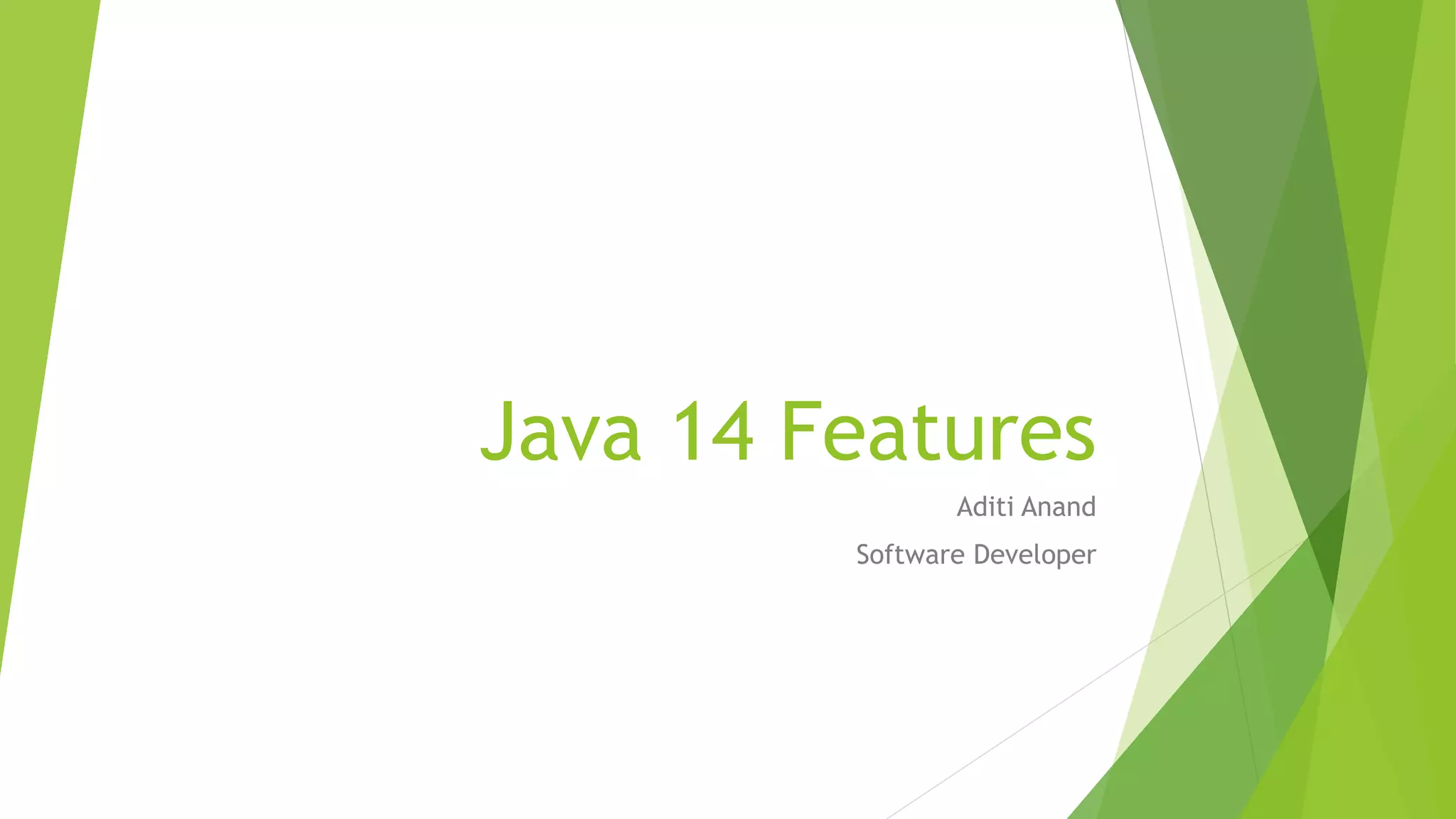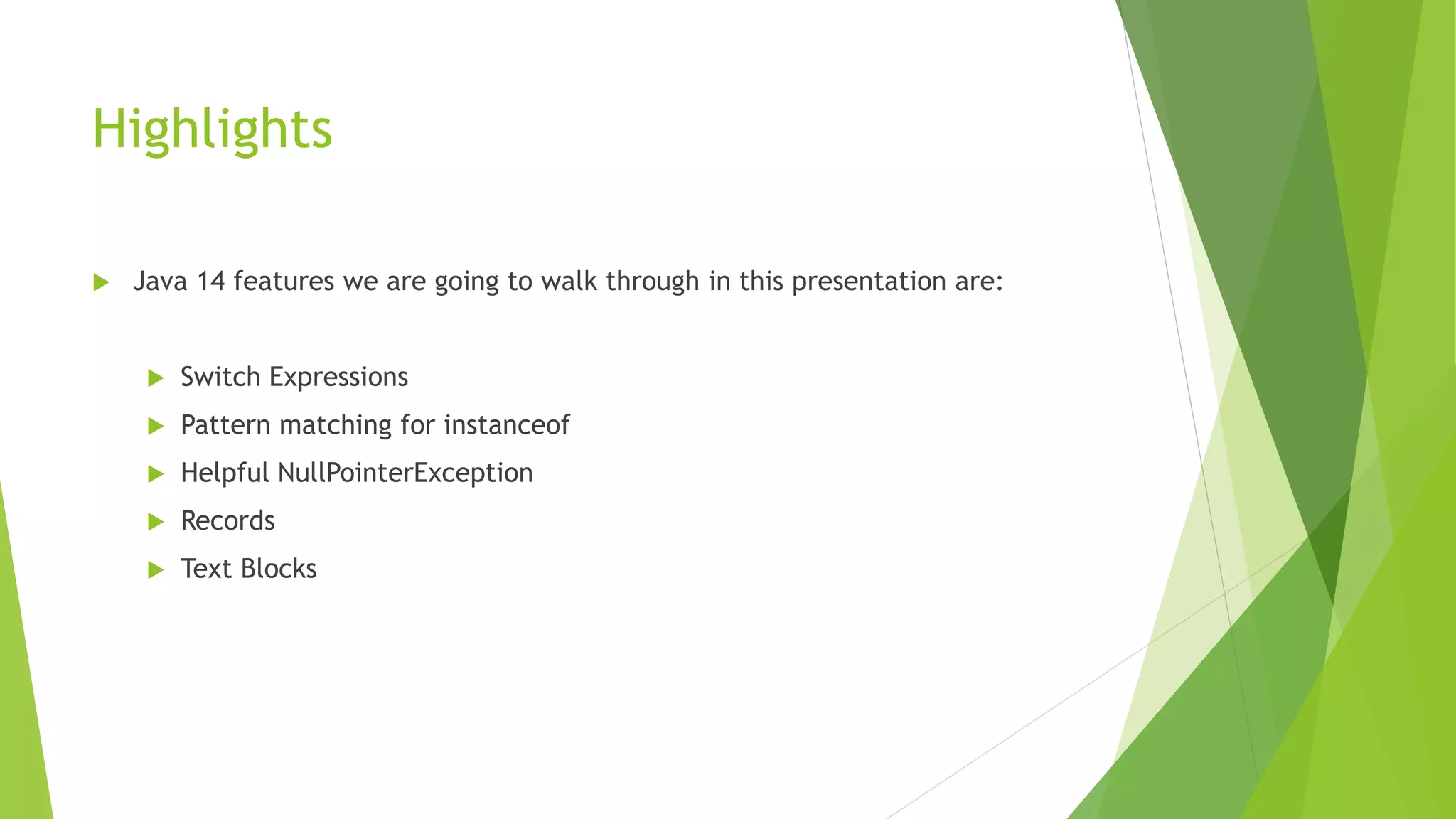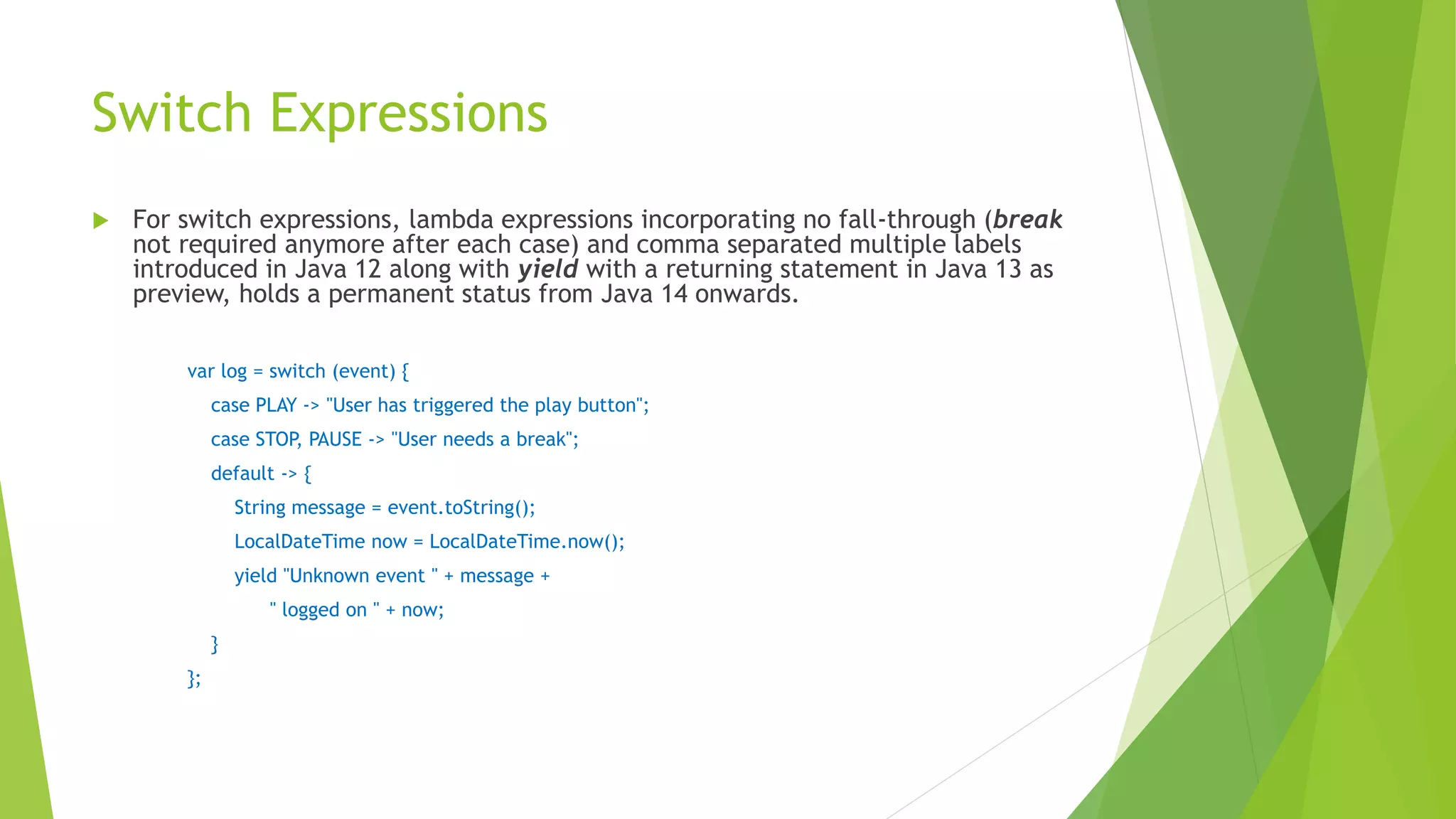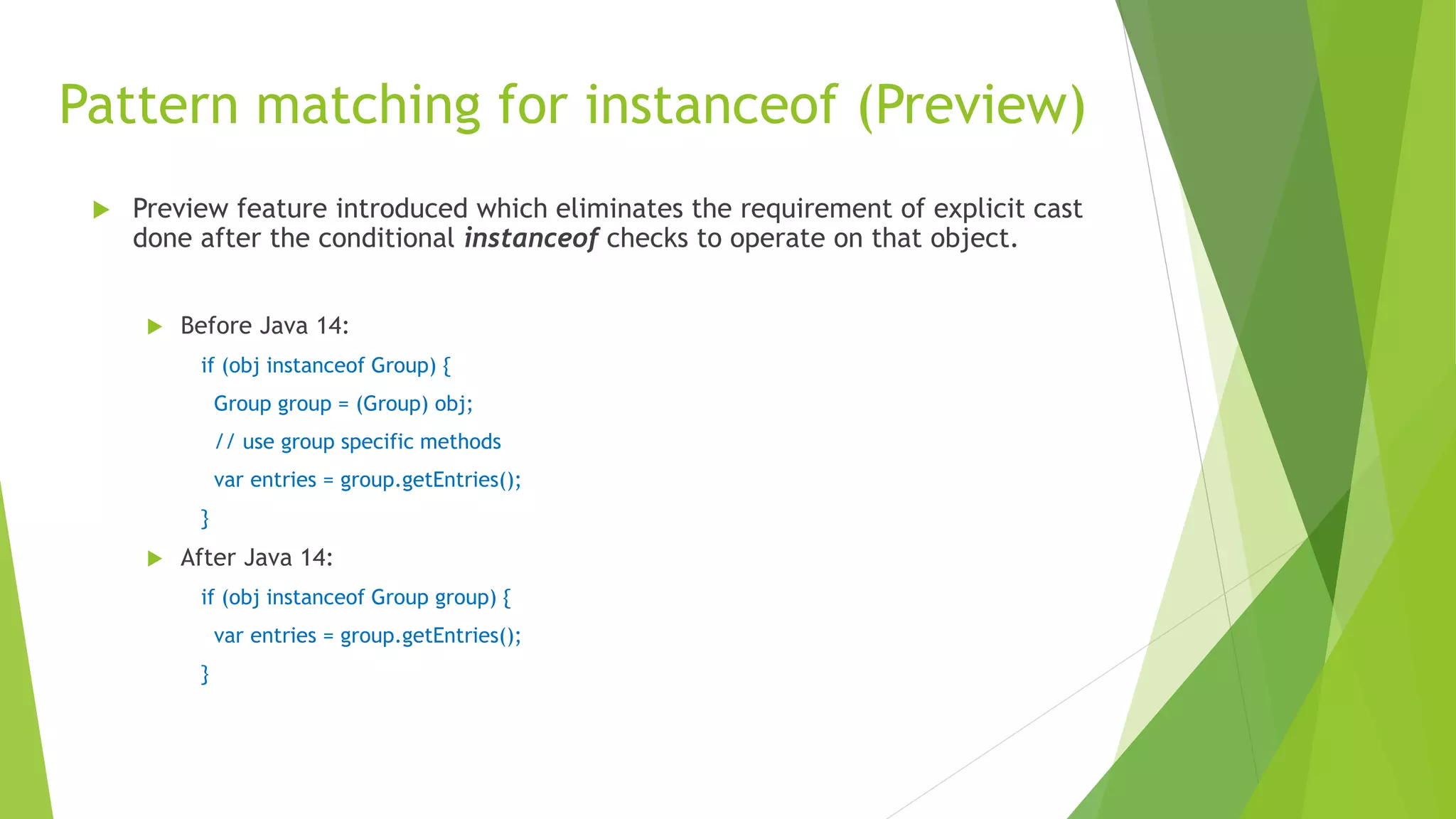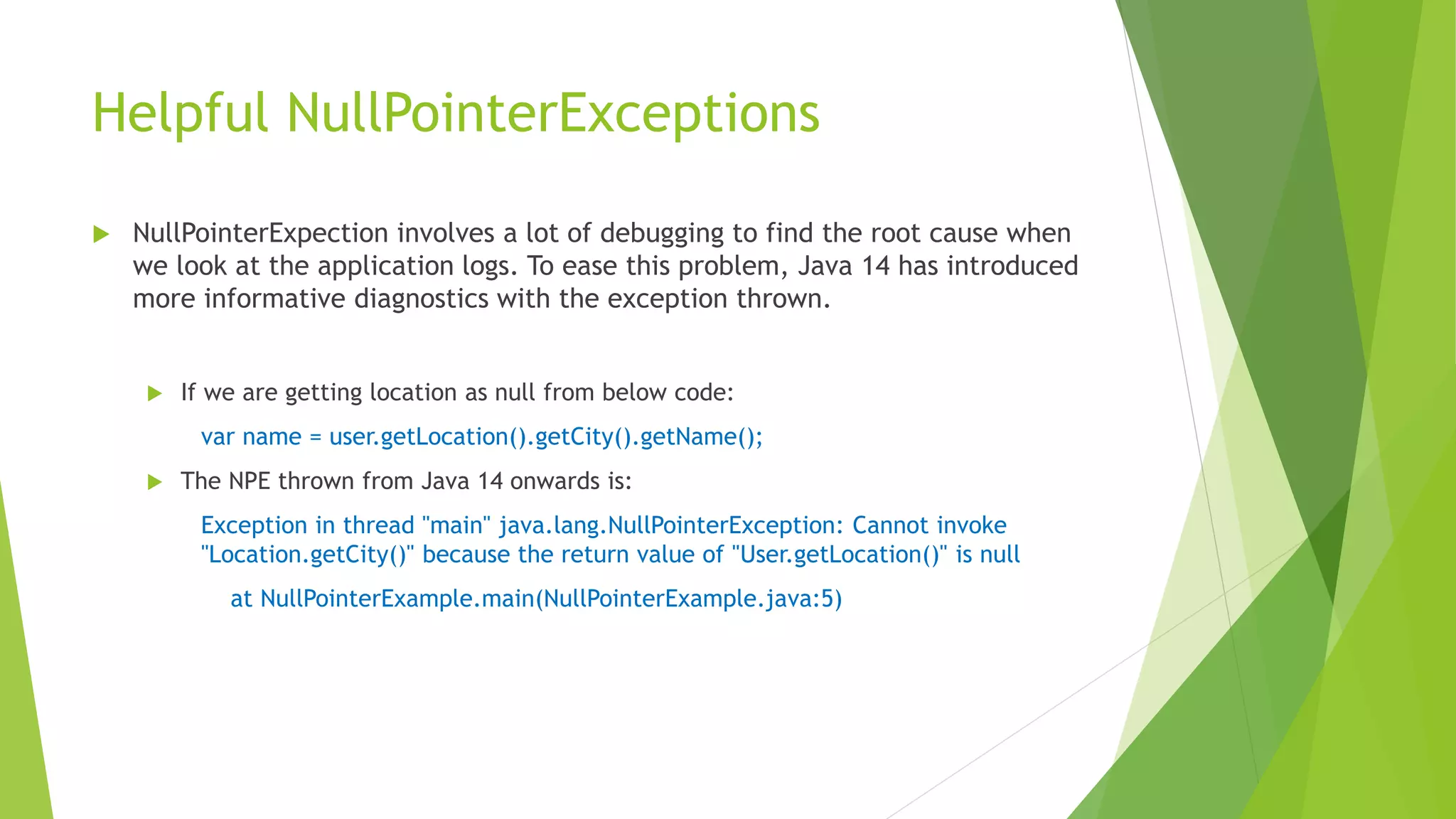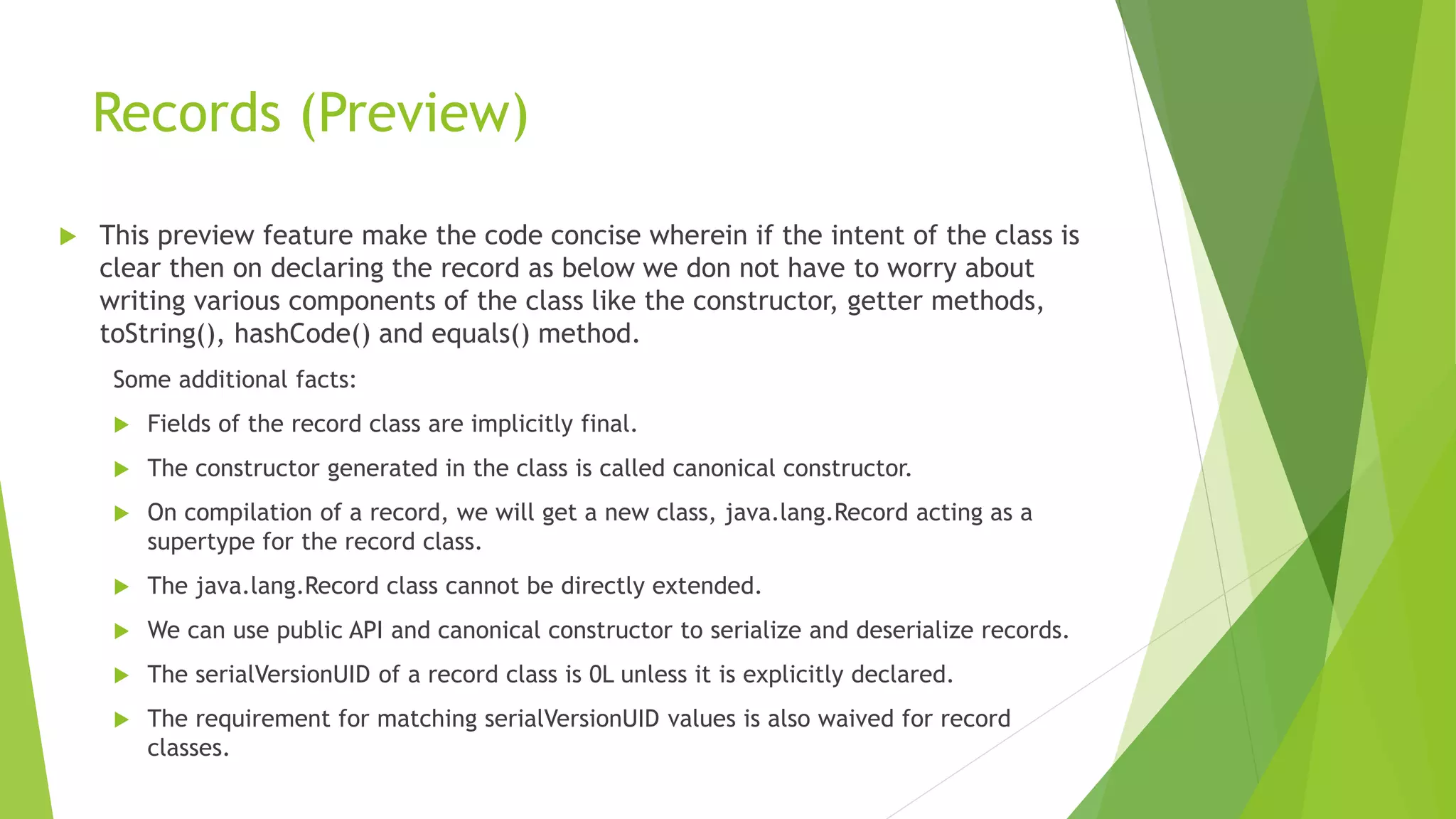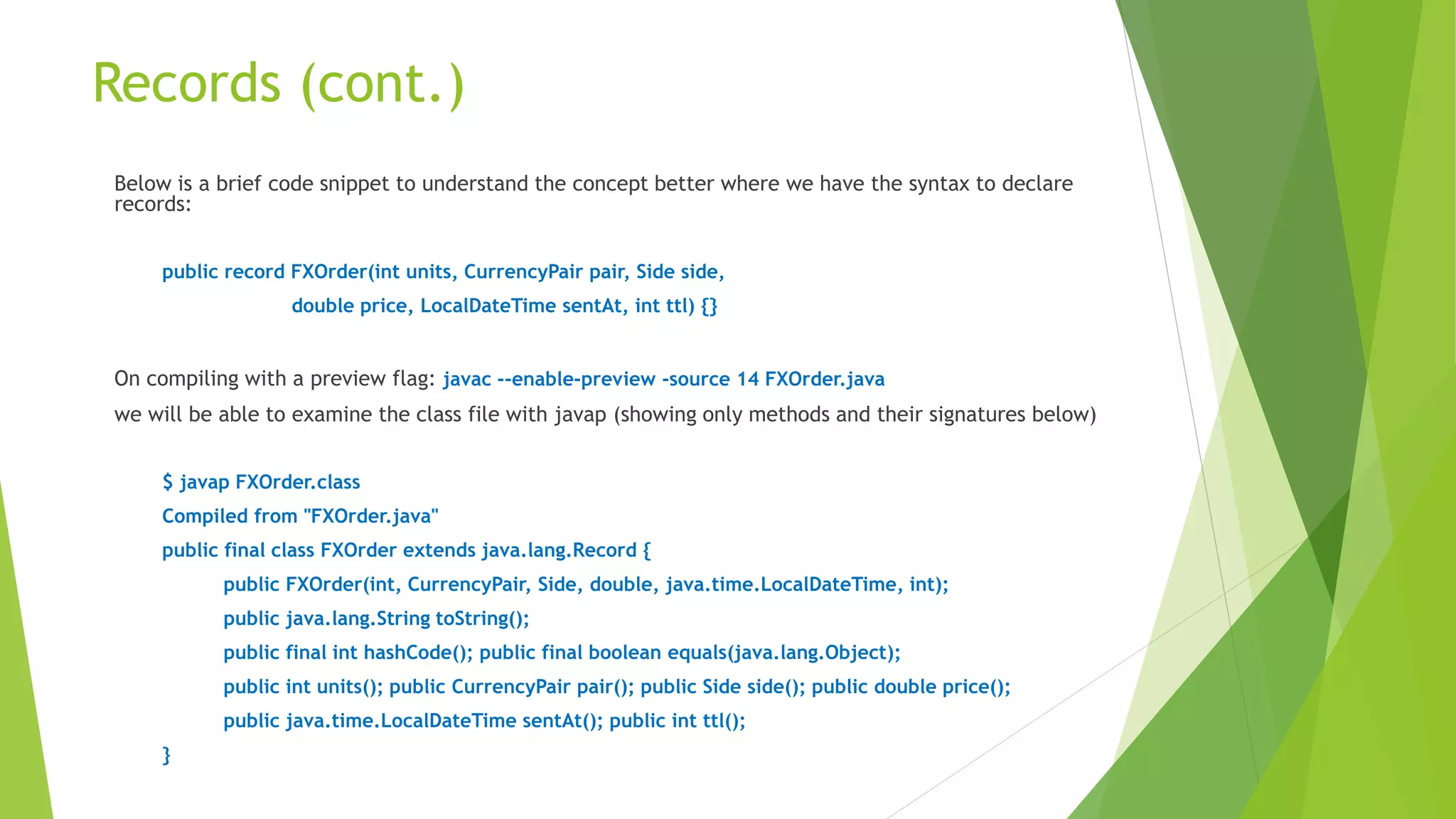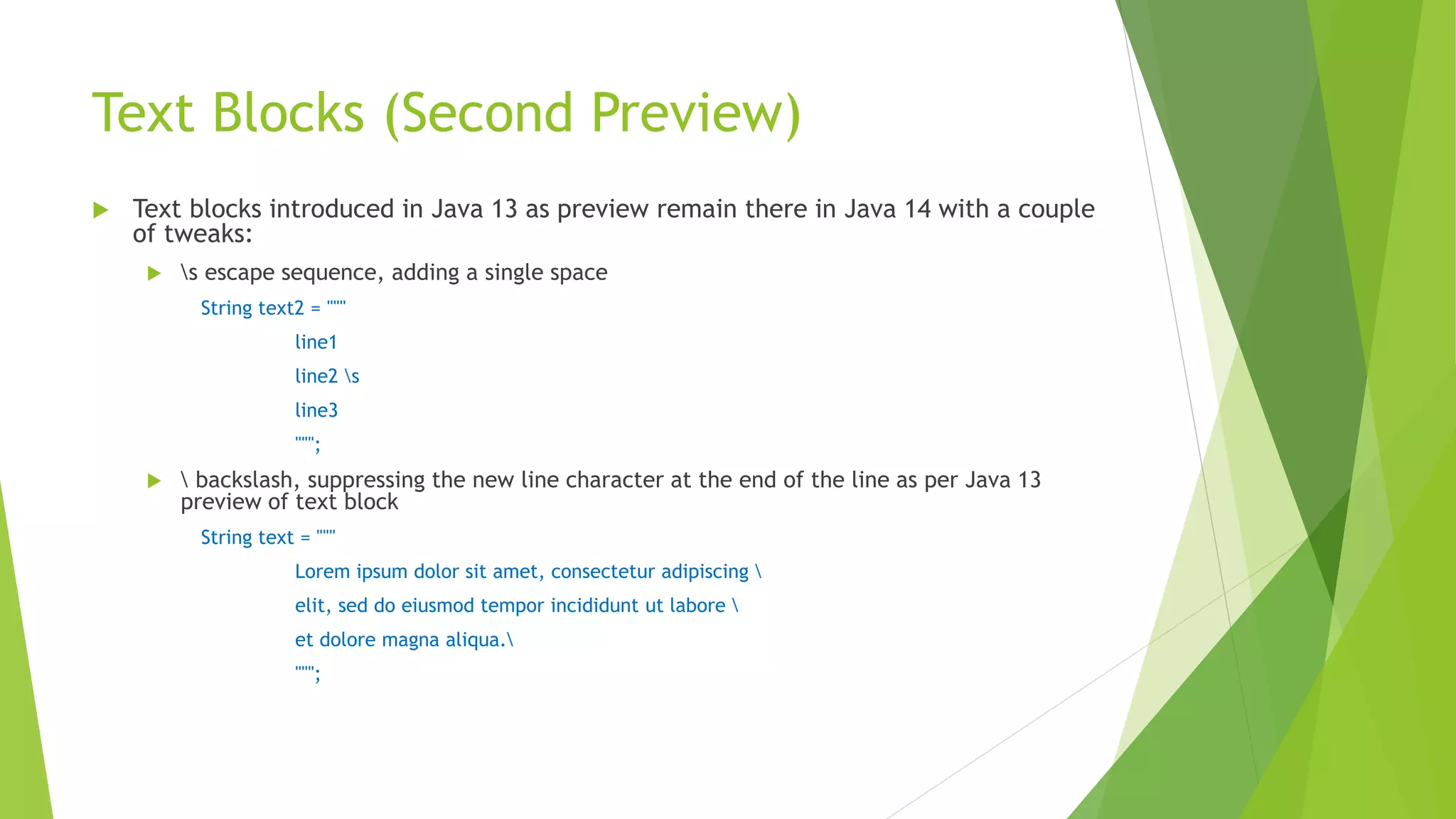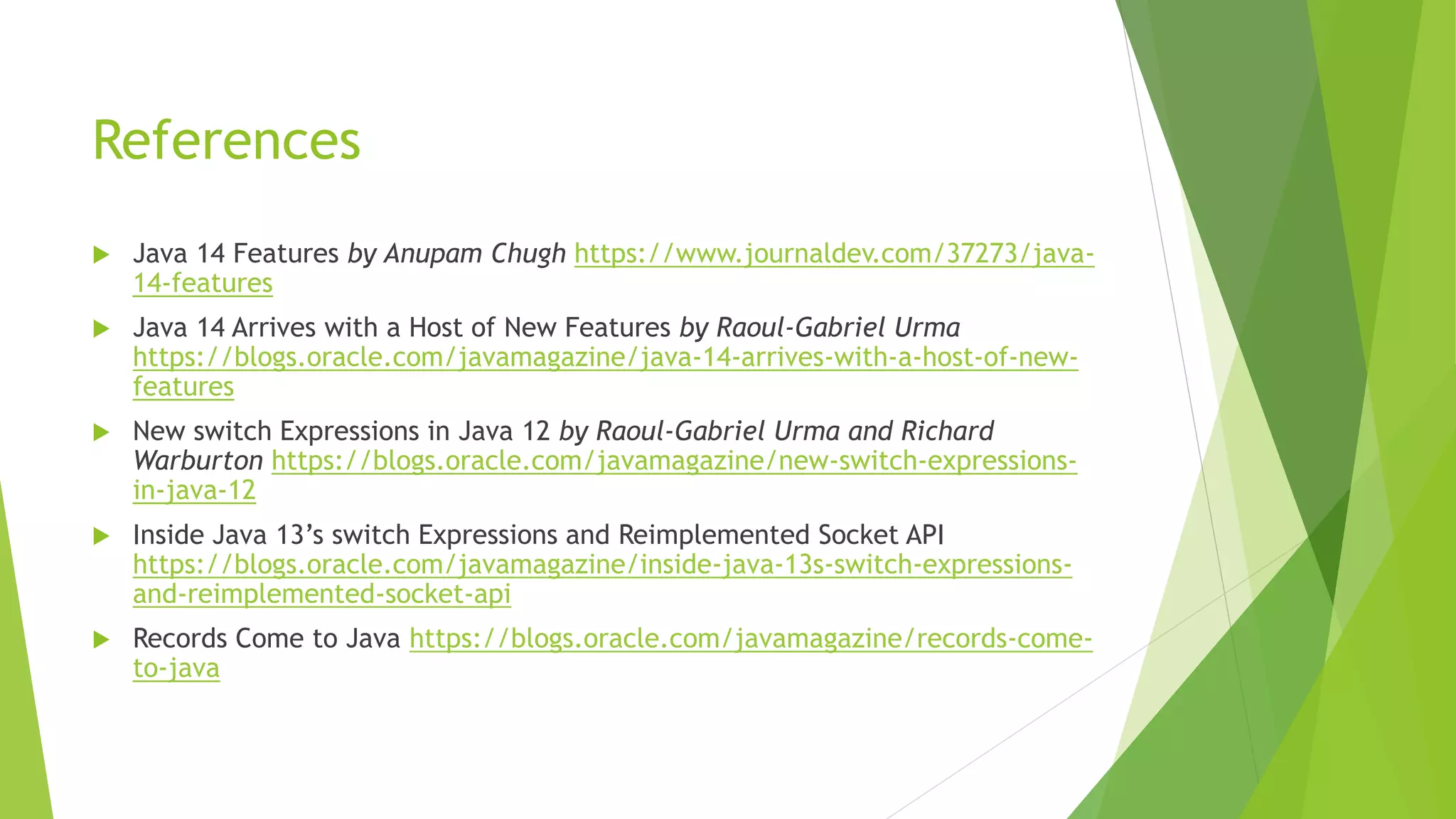This document discusses new features in Java 14 including switch expressions that allow fall-through without breaks, pattern matching for instanceof, more informative NullPointerExceptions, records to simplify object-oriented code, and text blocks with minor tweaks from Java 13. Records are a preview feature that allow defining classes as records to automatically generate common components like constructors, getters, equals, and hashCode methods.
